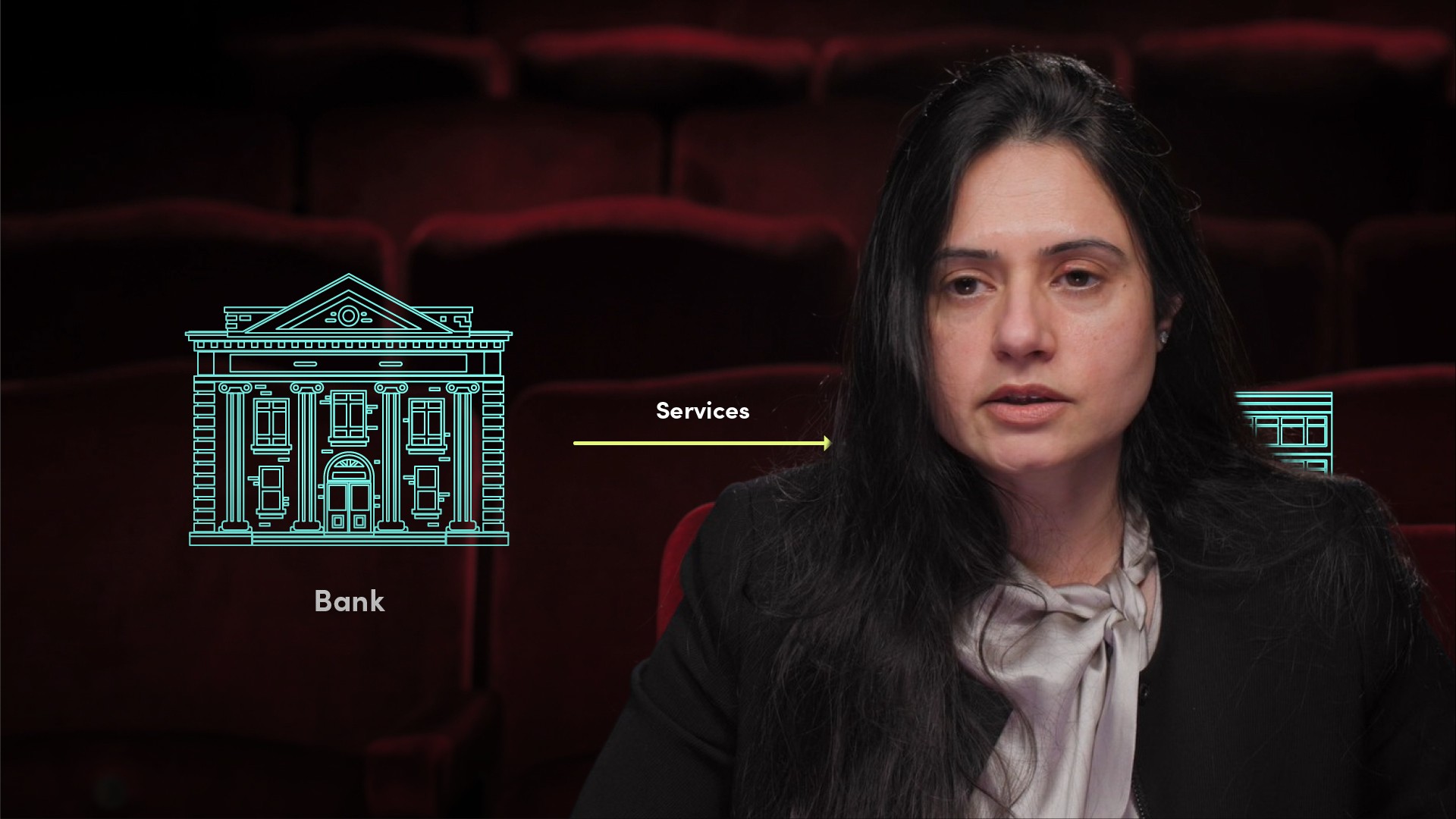
Introduction to Corporate Banking

Ritu Sehgal
20 years: Corporate banking
This two part video series explains various aspects of corporate banking through some example scenarios - both from the lens of a corporate and the bank. In this video, Ritu covers a brief case study exploring the typical products and services that play a central role in corporate banking.
This two part video series explains various aspects of corporate banking through some example scenarios - both from the lens of a corporate and the bank. In this video, Ritu covers a brief case study exploring the typical products and services that play a central role in corporate banking.
Subscribe to watch
Access this and all of the content on our platform by signing up for a 7-day free trial.

Introduction to Corporate Banking
10 mins 59 secs
Key learning objectives:
Describe corporate banking
Identify some core products that are key for the day to day functioning of a bank
Overview:
Corporates have different needs and they like to work with banks they have developed relationships with. A corporate will need a range of services from a bank and while these can vary depending on the nature and scale of business, along with the macro environment a corporate plays in, there are certain core products that are key for their day to day functioning.
Subscribe to watch
Access this and all of the content on our platform by signing up for a 7-day free trial.
What is Corporate banking?
Corporate banking, a widely used term in the banking sector, refers to the services that a bank offers to its larger corporate customers.
What do customers look for when picking a bank account?
- Good branch network
- Convenient user-friendly app
- Interest rate on savings
- Any value-added services, e.g. loyalty rewards or cash back
How does an individual interact with a bank and how does the bank approach this relationship?
You get compensated for your services as an individual, therefore you'll need a bank account not only to receive money, but also to pay your bills and costs. You select a bank based on a few factors. As your needs evolve, you may look for a personal loan or a mortgage and you go through a selection process for a bank. As your usage of the bank’s services increases, you start building relationships with a few select banks. You realise some banks reward loyalty, offer better terms on products and prefer that you stay with them.
From a bank’s perspective, they like to invest in individual relationships that will reward them through annuity income and growth potential and will like that an individual buys as many products as possible from them - a process called cross-selling. This gives the bank both an economy of scale and an assured income stream.
Corporates are similar in that they have varied needs and prefer to work with banks with which they have established connections and can rely on for day-to-day services, funding, or event-driven requirements. Before onboarding any new corporate client, banks conduct significant due diligence and know your customers, or KYC, processes to safeguard themselves against fraud and the facilitation of unlawful transactions.
What are the typical products and services that play a central role in corporate banking?
Loans:
Assume a manufacturing company Solar Plc has plans to buy new equipment costing £50m for enhancing its productivity. The acquisition of the machinery will need financing so the Treasurer, John Smith, will have a few options to consider. Comparing various options, John realises while bonds might provide a cheaper borrowing rate and a longer tenor, the fee for legal documentation and bond distribution may not be justified for a relatively small size of £50m. Further, using internal reserves is likely to be more expensive, So, John decides to go for the third option which is a term loan and approaches two of his relationship banks, HSBC and Barclays.
Both Barclays and HSBC take internal approvals and present the proposal to Solar Plc. John will weigh up these proposals against Solar Plc.’s internal policies, cost of offering collateral and the price differential on the table. Let’s conclude by saying however that on balance, John decides to go with Barclays because the implied cost of providing the collateral, makes the overall cost of funding higher with HSBC.
Currency and Interest Rates Swaps:
A currency swap entails the exchange of payments in one currency for another currency. Corporates with obligations in foreign currencies often use currency swaps to take advantage of favourable borrowing rates in one currency over another.
To recap, John has decided to go with the Barclays loan of £50m on an unsecured basis at 1.5%. Barclays, being a relationship bank, wants to offer an option that can further reduce the overall loan cost for Solar Plc. and therefore includes the flexibility for John to borrow the funds in US dollars at a lower interest rate of 1.1%. Barclays can do that because the interest rates are lower than sterling rates, and Barclays’ dollar cost of funding is lower.
John likes having the option provided by Barclays. But Solar Plc’s base liability is in Pound Sterling which means John will need to convert the US Dollar loan into sterling. This will involve a cost that he needs to factor in. In addition, by raising the loan in US Dollars, a foreign currency, Solar Plc is subject to foreign exchange rate fluctuations. Barclays is happy to propose a currency swap option to Solar Plc., another service that corporate banks provide.
What are the key criteria banks should consider when lending to a corporate?
- Banks must be comfortable with the credit quality of the borrower
- Assess the cash flows of the corporate to decide if the requested size of the loan can be covered by future earnings and therefore repaid over the agreed tenor
- Arrive at a price which is benchmarked against the market for similar rated corporates and which is adequate to cover the bank's cost of capital either on the loan itself or on total business that this loan will help the bank win
- Assess the value of collateral available for secured facilities
Subscribe to watch
Access this and all of the content on our platform by signing up for a 7-day free trial.

Ritu Sehgal
There are no available Videos from "Ritu Sehgal"



























